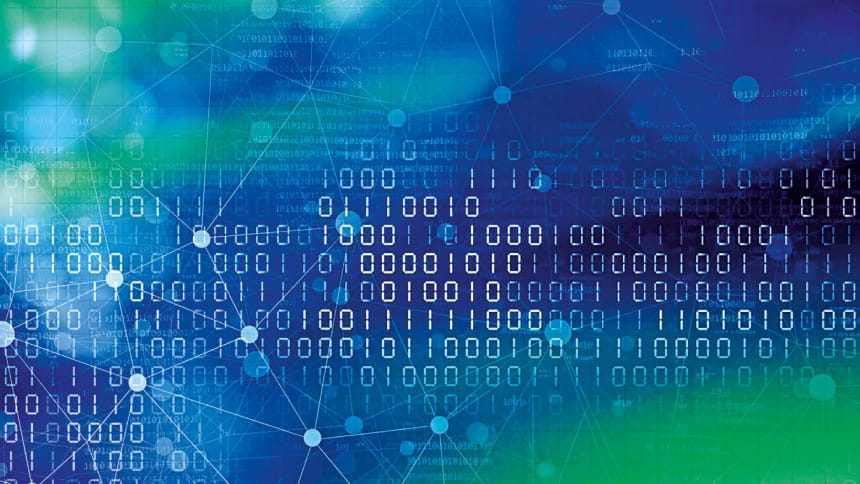Digitising the NGO Affairs Bureau

In the context of Covid-19 pandemic, it is evident that governments worldwide have to adapt to unconventional methods and ensure the incorporation of technology in the workplace. Digitisation has become not just a call of the time, but a need for a sustainable development of the economy. The world at large, even after the lockdown measures adopted by countries come to an end, will have to adapt to a 'new normal'. This vision of a 'new normal' for businesses across the countries predictably includes the need to be able to produce deliverables with the help of technology.
While the policy and regulatory framework of most developing economies have not yet adapted to an ideal model of e-governance, the government of Bangladesh has been proactive in the last decade in digitalising the government and non-government sectors, with major investments in high tech parks, establishment of data centres, etc. In light of the Hon'ble Prime Minister Sheikh Hasina's 'Vision 2021' of establishing Bangladesh as a middle-income country at the 50 years of independence, the dream of 'Digital Bangladesh' began to take shape. Several regulatory and legal reforms in the last decade have paved the way for crafting adjustment towards the new normal, by further digitising government and non-government institutions.
With this end in view, it is necessary for the government to immediately take measures to digitise the registration process of the Non-Government Affairs Bureau (NGOAB). Owing to the complex procedure and an influx of Non-Government Organisations (NGOs) in Bangladesh to rehabilitate the Rohingya refugees, there has been a severe backlog of registration, with an average registration taking much longer than the stipulated time (which is supposed to be approximately a period of 5weeks), and this backlog is expected to get worse with the Covid-19 pandemic.
The contribution of the NGOs in Bangladesh since its inception in 1971 has been significant, with national and global assistance working in harmony to ensure poverty alleviation, healthcare and education, and expediting the process of relief and rehabilitation as a response to all the natural disasters that have hit Bangladesh over the years.
While it remains the State's responsibility to work for the welfare of the citizens during the pandemic, the NGOs can play a significant role in rendering support to the State for reaching out to the vulnerable and affected people.In this regard, the State needs to facilitate the infrastructure necessary for the NGOs to operate effectively.
While it is evident that the poorer countries have been unable to adopt to the stringent, smart and systematic use of technology like the developed ones, the crisis has in itself presented an opportunity for these countries to adopt bold measures in incorporating the same in their forms of governance. The fruits of this modification, while accrued to address the need of the current time, could eventually outlast the crisis period, and serve the countries in the future.
This pandemic has revealed several layers of fault lines in the system, highlighting particularly the need for a collaborative approach between public and private sectors to ensure basic human rights. While the inertia created by bureaucratic regulations was initially prevalent, the government was expeditious in realising the need to act quickly during the pandemic. As such, approvals were being given online during the early stages of Covid-19. However, with government offices re-opening, there is a likelihood for the system in general of going back to the old practice of inviting hard copy applications followed by lengthy approval procedure. It is important that we carry forward the good practices established during the pandemic and make use of our existing technological framework to ease the functioning of NGO ecosystems.
Sections 19 and 20 of the Foreign Donations (Voluntary Activities) Regulation Act, 2016 provide power to make rules and pass executive orders when necessary. Therefore, the NGOAB can issue an internal notification/circular setting out the steps for digitisation as the 2016 Act itself provides the platform for digitisation of the registration system. Furthermore, in a crisis situation like Covid-19, special notifications easing the requirement to complete the registration process could be waived temporarily, allowing all international NGOs to function without impediments.
It is imperative for the government to realise that technology, perhaps, is the strongest weapon readily available at our disposal to fight the pandemic. This is also in symmetry with the government's vision of a Digital Bangladesh. Every crisis is an opportunity. We must utilise this opportunity to bring about drastic regulatory changes which will outlast the present crisis.
THE WRITERS ARE ASSOCIATES OF THE LEGAL CIRCLE.

 For all latest news, follow The Daily Star's Google News channel.
For all latest news, follow The Daily Star's Google News channel. 



Comments